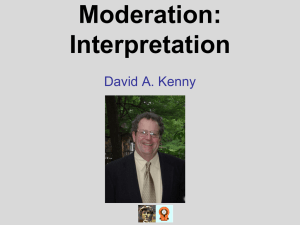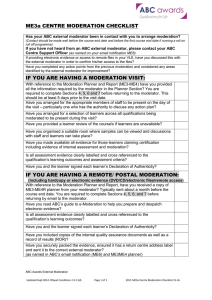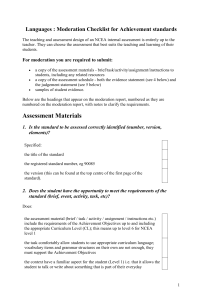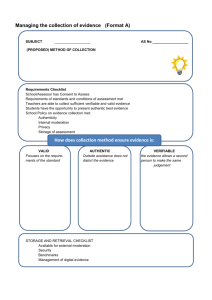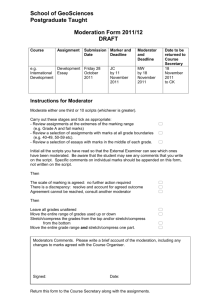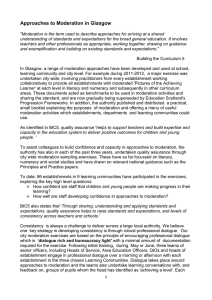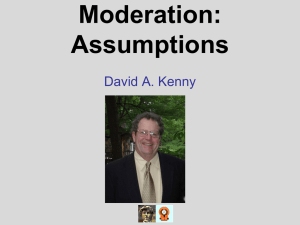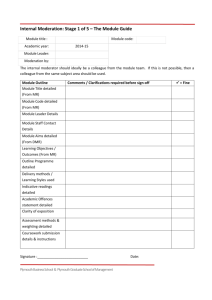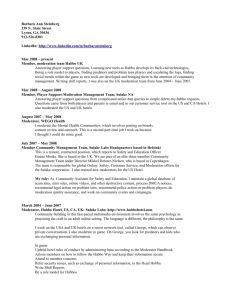The Basics and Introduction
advertisement
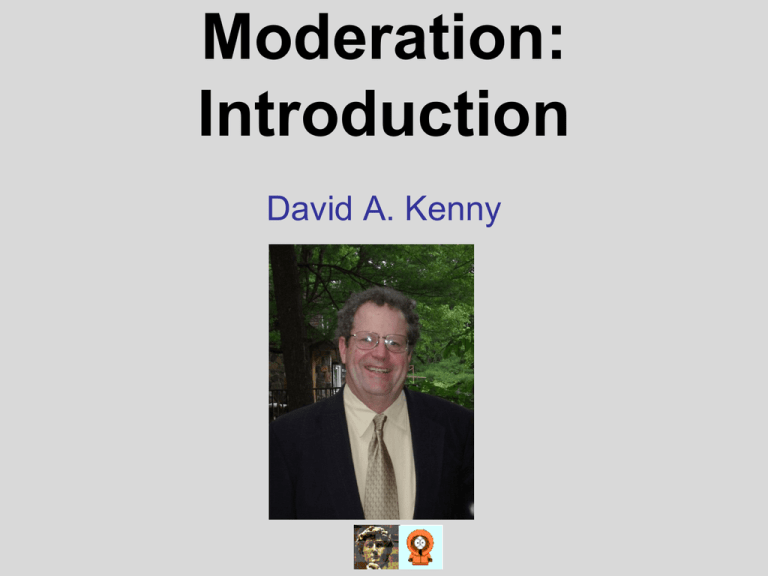
Moderation: Introduction David A. Kenny What Is Moderation The causal relationship from a causal variable or X to an outcome or Y changes as a function of a moderator or M. – X and M interact to cause Y. – Effect of stress on mood is moderated by gender. 8 The Effect of Stress on Mood Varies by Gender 7 6 Mood 5 Male 4 Female 3 2 1 0 Low High Stress Causation and Correlation • Need to know causal direction of the X to Y relationship. • If X is a manipulated variable, there should be no relationship between X and M. • Unlike mediation, there is no reason why necessarily X and M should be correlated. Timing of Measurement • Typically M is measured before or at the same time as X. • Will discuss whether a moderator can be caused by X when we discuss Assumptions. Statistical Estimation • Typically estimated as the interaction between X and M • Y = aX + bM + cXM + E a = “main effect” of X b = “main effect” of M c = interaction between X and M • Important to include both X and M in the model. • Will discuss the Interpretation in another webinar. Linearity • Using an product term implies a linear relationship between M and X to Y relationship. • The effect of X on Y changes by a constant amount as M increases or decreases • For example: the effect of Stress on Marital Satisfaction changes by the same amount for every year married. Statistical Estimation • What was described has been called moderated regression analysis. –One equation –Moderation as an interaction • Problematic alternatives –Separate slopes –Difference in correlations –Median split Separate Slopes? • M is categorical. • Slope computed for each group in separate analyses. • Difficult to test for moderation and less power. • Is the correct analysis when there are heterogeneous errors. Separate Correlations? • Categorical moderator. • Compute the correlation between X and Y to determine moderation within each category. • Problem: Differences in X variance. –If men have more variance on X than women, then women would likely have a weaker correlation (restriction in range). Median Split? • M is measured at the interval level of measurement. • A questionable way to measure and test for moderation is to split M at the mediation and compute slopes for X to Y above and below the split value. • Big loss in power (see Aiken & West). Flipping X and M • Because XM is an interaction, it can be interpreted as the effect of X depends on M or the that the effect of M depends on X. • Either a different discipline or a rethinking might lead to treating X as the moderator instead of M. • Sometimes this is a useful exercise. Diagrams of Moderation .5 .7 Key Resource • Aiken, L. S., & West, S. G. (1991). Multiple regression: Testing and interpreting interactions. Newbury Park, CA: Sage. Additional Webinars • • • • Interpretation Assumptions Effect Size and Power ModText 16
